Why 2025 Is the Perfect Year to Start Your Hydroponic Farming Business
Embrace the Future of Farming
Hydroponic container farming is poised to be a transformative force in 2025, offering innovative solutions to contemporary challenges in food safety, local sourcing, supply chain resilience, health, and environmental sustainability. Here's why 2025 is an ideal time to embark on a hydroponic farming venture:
Enhanced Food Safety
Foodborne illnesses remain a significant concern, with consumers increasingly vigilant about the origins and safety of their food. Hydroponic systems, operating in controlled environments, substantially reduce the risk of contamination from pathogens like E. coli and salmonella. Additionally, the absence of soil eliminates the need for pesticides, addressing consumer concerns about chemical residues.
Surge in Local Purchasing
The trend toward supporting local businesses has intensified, with consumers prioritizing locally sourced produce for its freshness and reduced environmental impact. Hydroponic farms, often situated in urban or peri-urban areas, can meet this demand by supplying fresh, locally grown vegetables year-round, strengthening community ties and reducing food miles.
Supply Chain Resilience
Global supply chain disruptions have underscored the need for localized food production systems. Hydroponic farming offers a solution by enabling consistent, local production of essential crops, mitigating the impact of international logistical challenges, and contributing to food security.
Health and Wellness Focus
With a growing emphasis on health and nutrition, consumers are seeking out fresh, nutrient-rich foods. Hydroponically grown produce, harvested at peak ripeness and delivered swiftly to local markets, retains higher nutrient levels compared to produce subjected to lengthy transportation and storage.
Environmental Sustainability
Environmental concerns are driving demand for sustainable agricultural practices. Hydroponic farming uses up to 90% less water than traditional agriculture and can be implemented in areas with limited arable land, reducing the need for deforestation and soil degradation. Its efficient use of resources and potential for renewable energy integration make it an environmentally friendly choice.
Technological Advancements
The rapid evolution of agricultural technology has made hydroponic systems more efficient and accessible than ever. With tools like farmhand®, Freight Farms’ proprietary software, growers can leverage automation and data analytics to precisely control growing conditions. This technology not only optimizes yields and resource usage but also simplifies farm management, reducing labor costs and empowering farmers to achieve consistent, high-quality results.
Economic Opportunities
As the hydroponic industry expands, it presents new economic opportunities for entrepreneurs and job seekers alike. The growing demand for fresh, local produce opens markets for hydroponic farmers, while the industry's growth spurs job creation in technology development, system maintenance, and distribution networks.
In conclusion, 2025 presents a convergence of factors that make it an opportune time to start a hydroponic container farming business. By leveraging technological advancements and meeting consumer demands for safe, local, and sustainable produce, hydroponic farmers can play a pivotal role in shaping the future of agriculture.
If you’re ready to start farming in 2025, contact our team or request a quote!
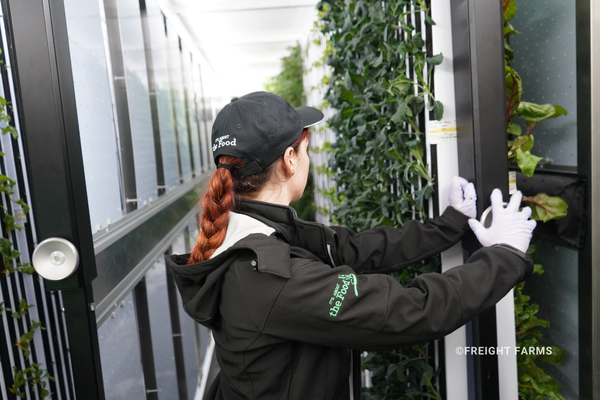
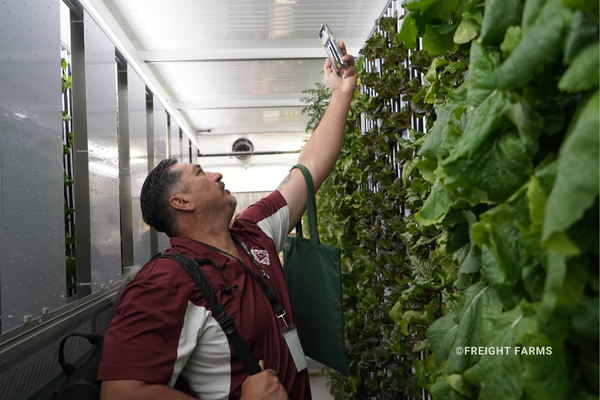
Wondering how much it costs to ship a container farm? Learn what factors influence delivery and crane pricing - and how to avoid unexpected charges.
Global supply chains are unpredictable, but local food production with Freight Farms’ Greenery™ container farm helps businesses, schools, and hospitals take control—growing what they want, when they want, where they want.
Grants can help fund your Freight Farm! Learn where to find grants, how to write a winning application, and what to expect in the process.
Grants provide a path to funding a Freight Farm for schools and community programs, offering fresh produce, hands-on education, and sustainability benefits. Explore funding options and how to apply today!
Grants can help fund your Freight Farm and make your vision a reality. This guide covers how to find the best funding opportunities, build a compelling application, and stay grant-ready year-round. Explore our expert tips and resources today!
Freight Farms tackles pressing agricultural challenges like PFAS contamination, soil scarcity, and climate volatility. Learn how our hydroponic systems provide clean, sustainable solutions for resilient food systems.
Discover why 2025 is the ideal time to start a hydroponic farming business. From food safety and local sourcing to sustainability and advanced technology, this guide covers the key trends and opportunities shaping the future of agriculture.
Hydroponic container farms are transforming classrooms into dynamic environments for social emotional learning (SEL). Learn how these innovative tools cultivate essential life skills while growing fresh produce.
Discover how Freight Farms’ Greenery™ provides a sustainable solution for clean, healthy crops while reducing the harmful impacts of traditional pesticide use.
Discover how the Greenery™ by Freight Farms is revolutionizing vertical farming. Learn how this innovative solution maximizes space, conserves resources, and enables sustainable, year-round crop production.
Discover how Controlled Environment Agriculture (CEA) is transforming farming with year-round crop production, optimized growing conditions, and sustainable practices. Learn how Freight Farms' innovative solutions make CEA accessible for growers everywhere.
Discover the best packaging options for hydroponic produce. From clamshells to eco-friendly boxes, find solutions to keep your crops fresh, protected, and market-ready.
Discover how container farms are revolutionizing STEM education by providing hands-on learning in botany, physics, chemistry, and more. Prepare students for the future with innovative, sustainable farming systems.
Discover how following food safety protocols in vertical farming can boost customer trust, protect your produce, and help your business thrive. Learn key practices that make your Freight Farm a reliable source of fresh, safe, and market-ready crops.
Hydroponic farming is a revolutionary way to grow plants without soil, using nutrient-rich water systems for faster growth and higher yields. Discover the key benefits, popular hydroponic systems, and real-world applications from nonprofits to healthcare, zoos, and more, all driving sustainable food solutions. Learn how you can get started with Freight Farms' customizable hydroponic solutions today."
Discover how to maximize your Freight Farm’s success by connecting with local resources, building community partnerships, recruiting top talent, and securing funding. Learn actionable steps to expand your farm's impact today!
Learn expert strategies to market your Freight Farm, build a strong online presence, engage with your community, and grow your business with sustainable local produce
On February 13th, 2020 we recorded the first of our two-part webinar series all about the Freight Farms Greenery. Part one focused on the technological systems that make the Greenery a growing powerhouse, capable of growing at a commercial scale 365 days a year. Get the whole story in our comprehensive webinar recap!
Discover 16 compelling reasons to start container farming today! From becoming your own boss and contributing to your community, to growing fresh, local produce year-round, container farming offers personal, financial, and environmental benefits.
Urban agriculture is revolutionizing food production in cities, transforming unused spaces like rooftops and vacant lots into thriving farms. Discover how urban farming enhances food security, sustainability, and economic growth, while reducing environmental impact.
Hospital-based farming is an innovative approach that integrates agricultural practices within healthcare settings to improve patient outcomes. Hospitals can enhance patient recovery, reduce food insecurity, and promote overall well-being by providing fresh, nutritious food directly from on-site farms.
Learn about 6 important things to consider when packaging your crops. We've compiled some resources to help you determine how to package hydroponic crops and what kind of packaging best suits the needs of you and your customers. We cover value propositions, branding, vegetable preservation, customer segments, and more.
Freight Farms provides a straightforward, sustainable solution for growing produce. This guide offers a comprehensive look at the daily, weekly, and monthly tasks required to maintain a Freight Farm, with detailed steps to give prospective buyers a clear understanding of farm management.
Co2 plays a crucial role in plant growth by aiding photosynthesis, turning carbon dioxide into energy. By supplementing Co2, plants grow larger, retain more moisture, and become more efficient with water use. Learn when to use Co2 and how it can enhance your farm’s output.
As vertical farming grows, so do the possibilities for crops you can cultivate in your farm. From leafy greens to herbs and even experimental crops, Freight Farms offers a vast range of options. However, with so many choices, it’s essential to start with a solid crop plan.
Schools across the country are finding innovative ways to make their Freight Farms more functional and educational for students. By customizing the interior and exterior, schools can turn these farms into engaging spaces for hands-on learning, science projects, and sustainability initiatives.
Discover essential cleaning tips for your Freight Farm to boost plant health and maximize efficiency. Learn how daily maintenance routines can prevent pests, bacteria, and algae, keeping your vertical farm productive and thriving.
Small business farmers constantly seek innovative methods to maximize productivity, sustainability, and profitability. This article explores their unique needs, compares traditional farming with container farming, and provides an in-depth evaluation of how Freight Farms can meet them.
Your grocer only sells a tiny fraction of the thousands of varieties of edible greens that exist in nature. At Freight Farms, we’re able to grow delicious and unique plants that you likely haven’t seen at the store.

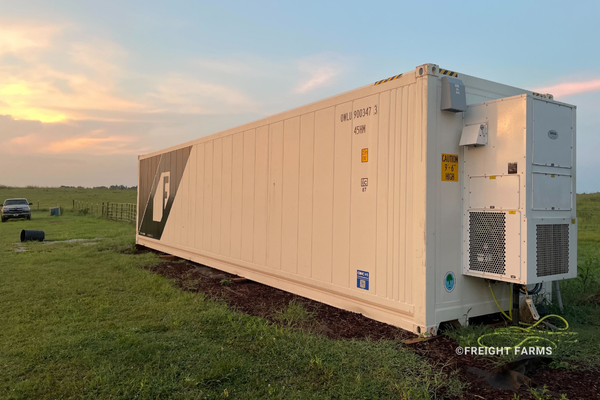
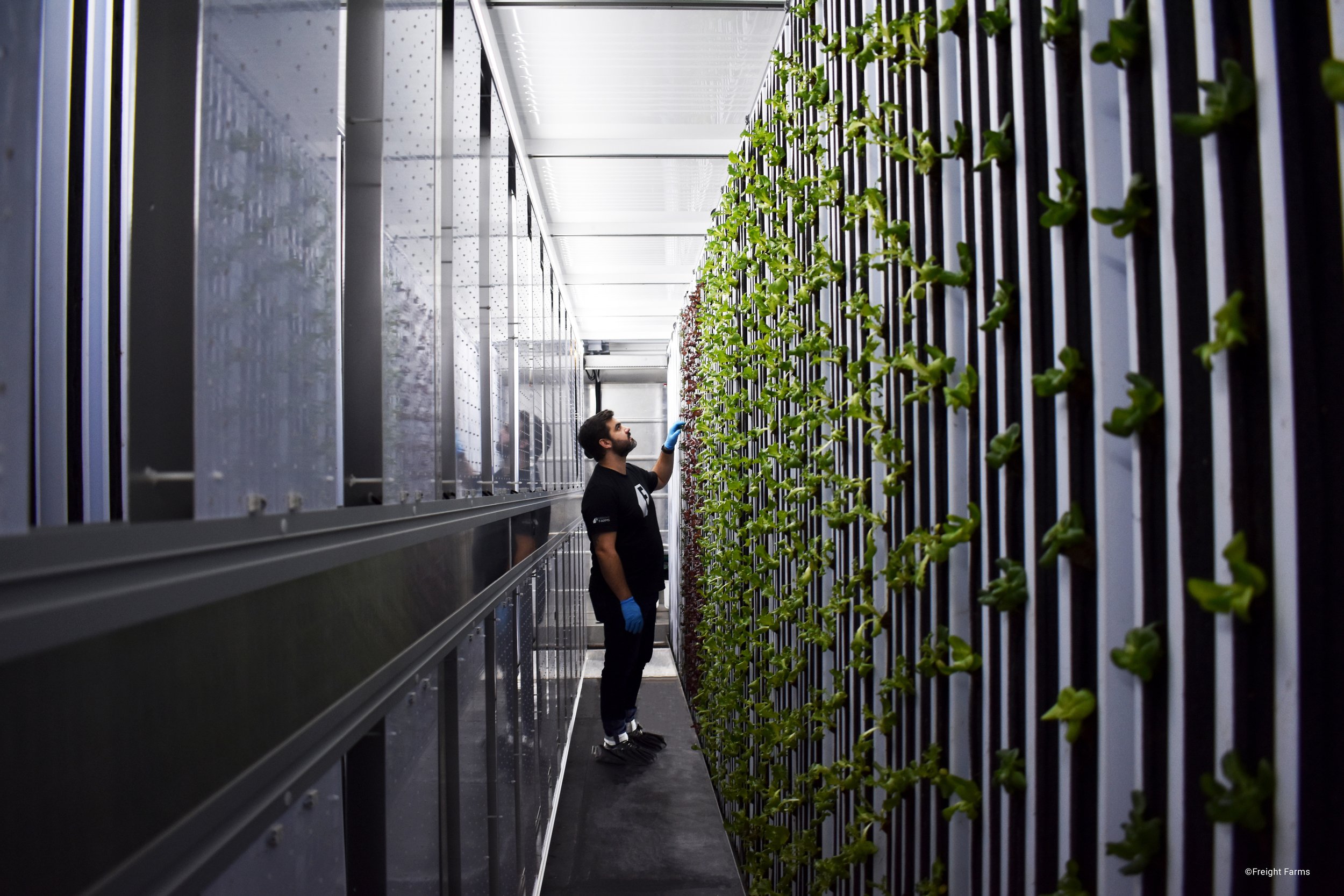










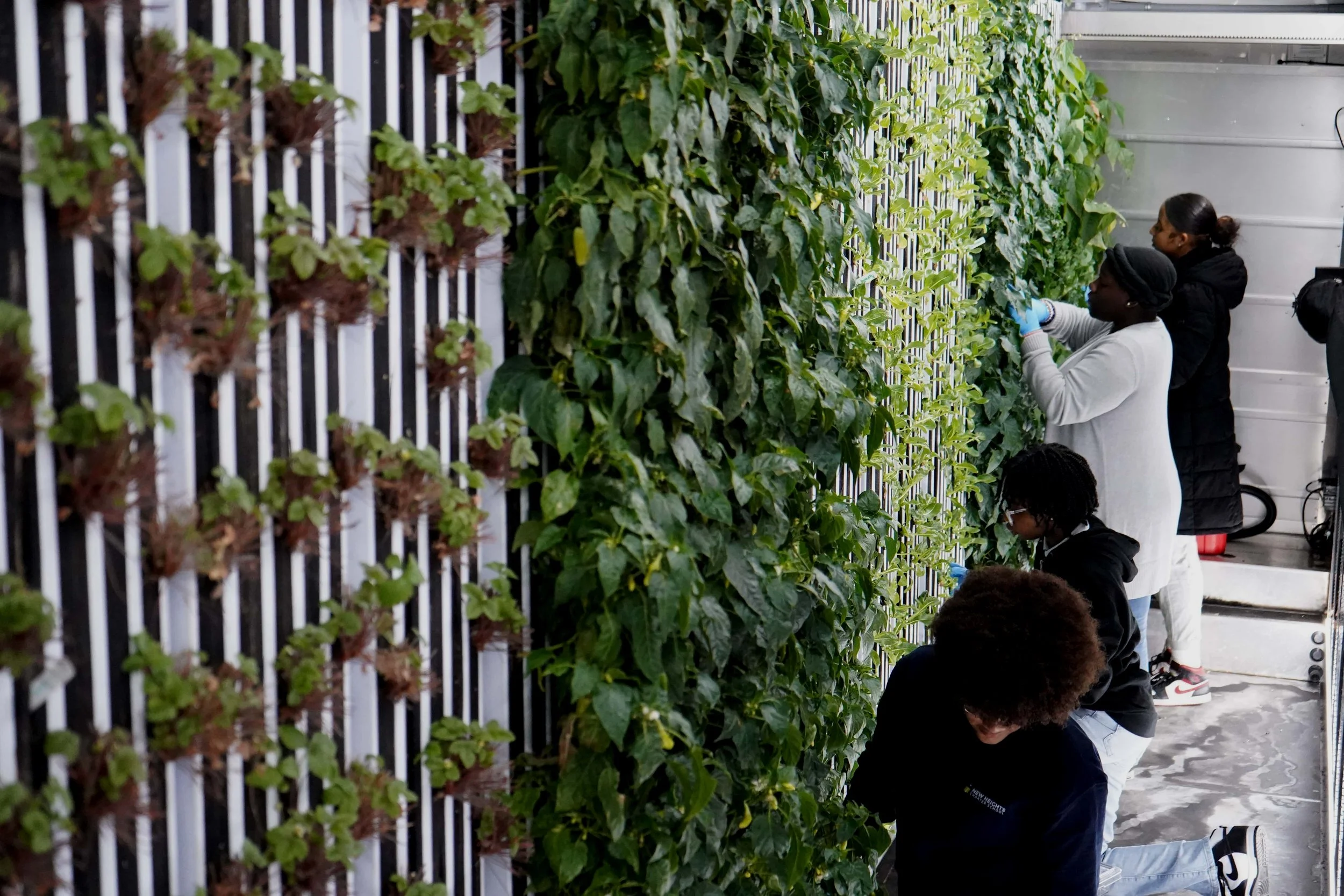



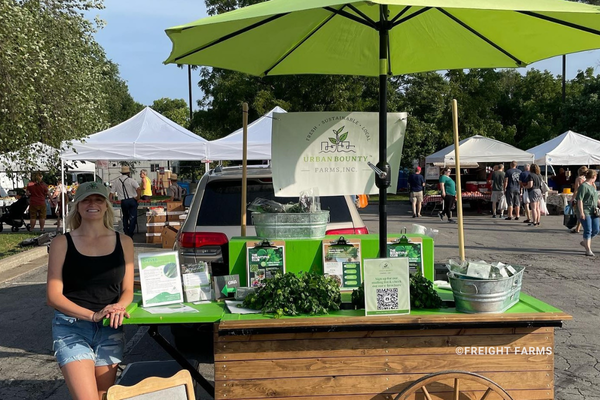
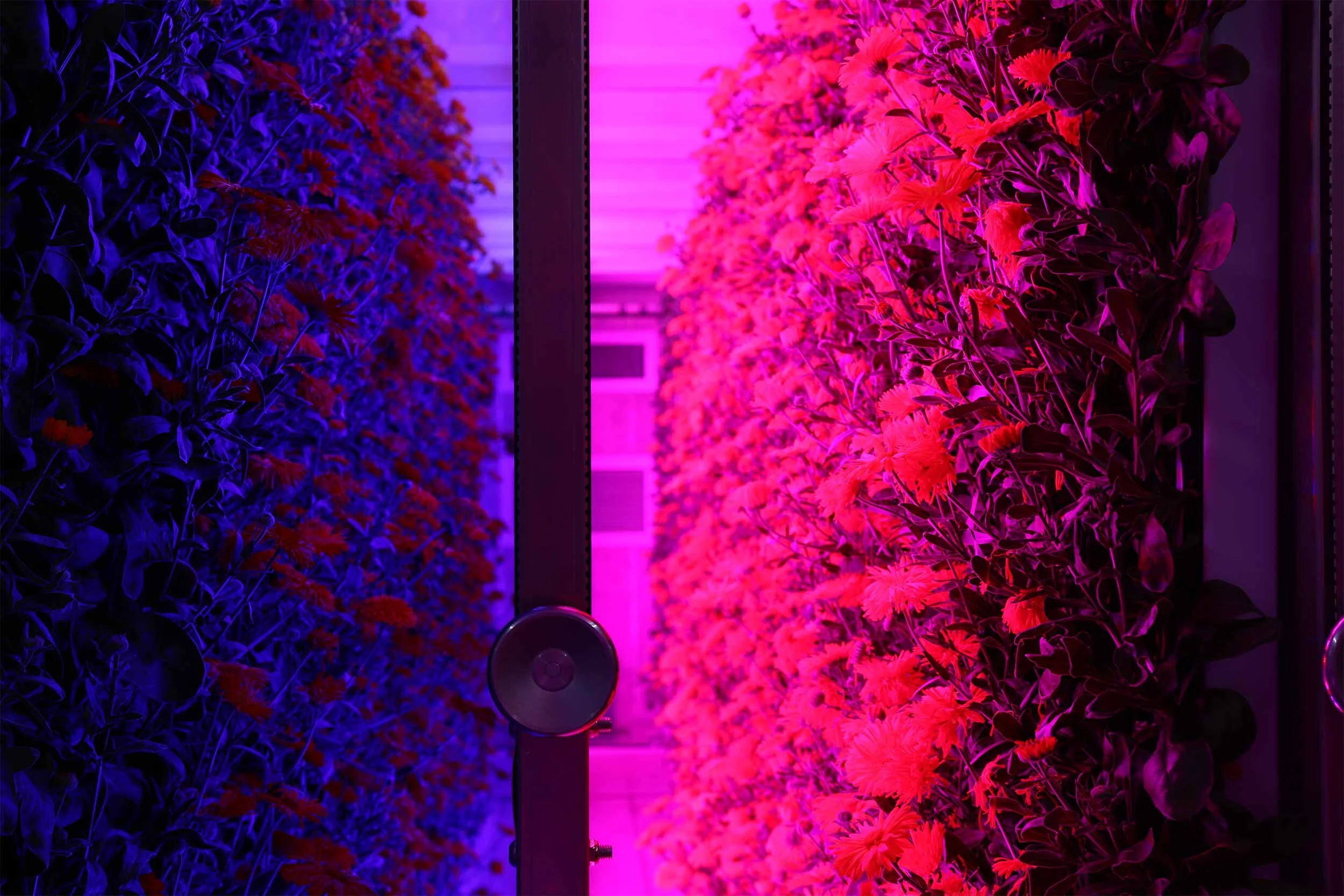








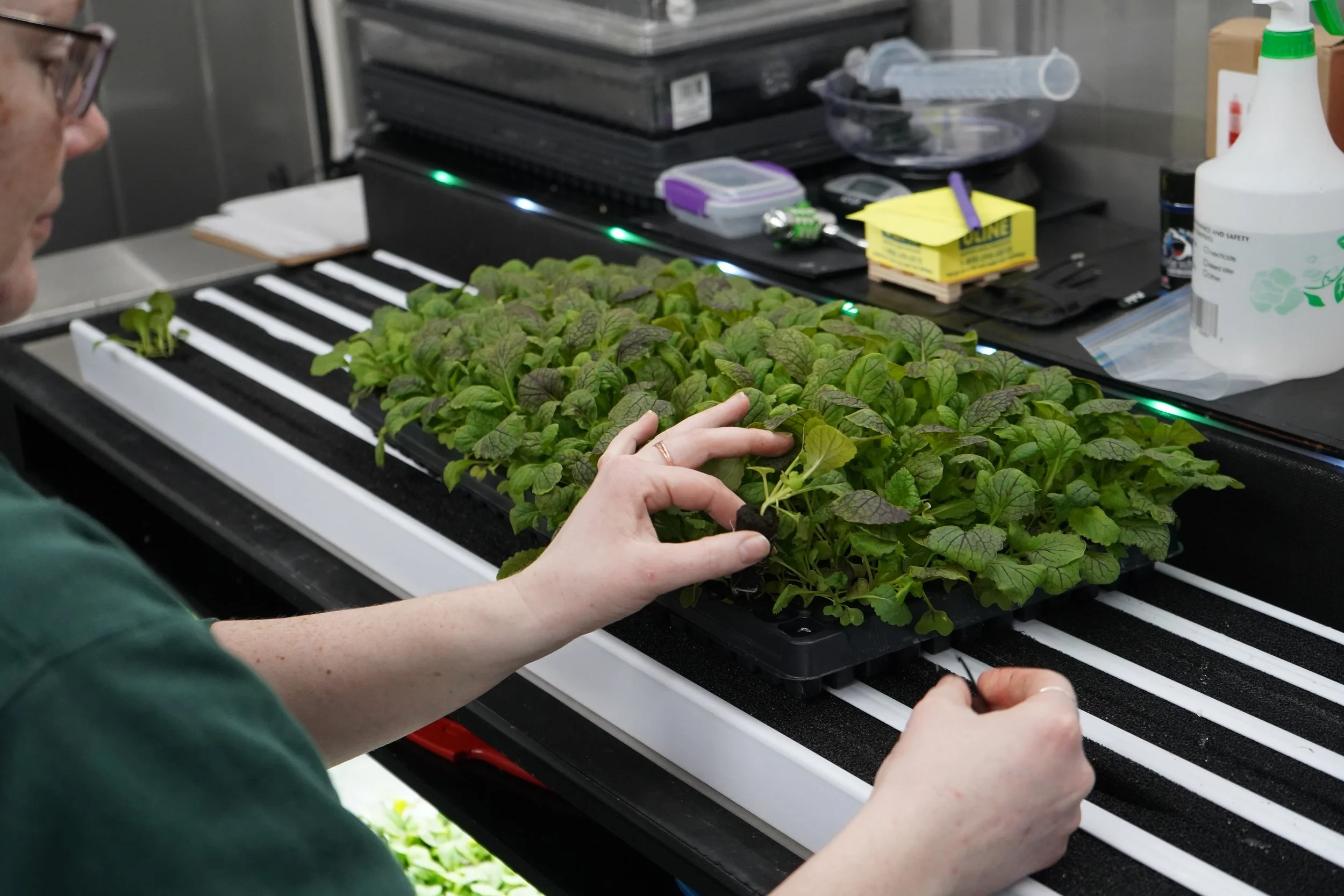


Future planning for your Freight Farms delivery? Learn what your site needs, what to expect on delivery day, and how to avoid common surprises.